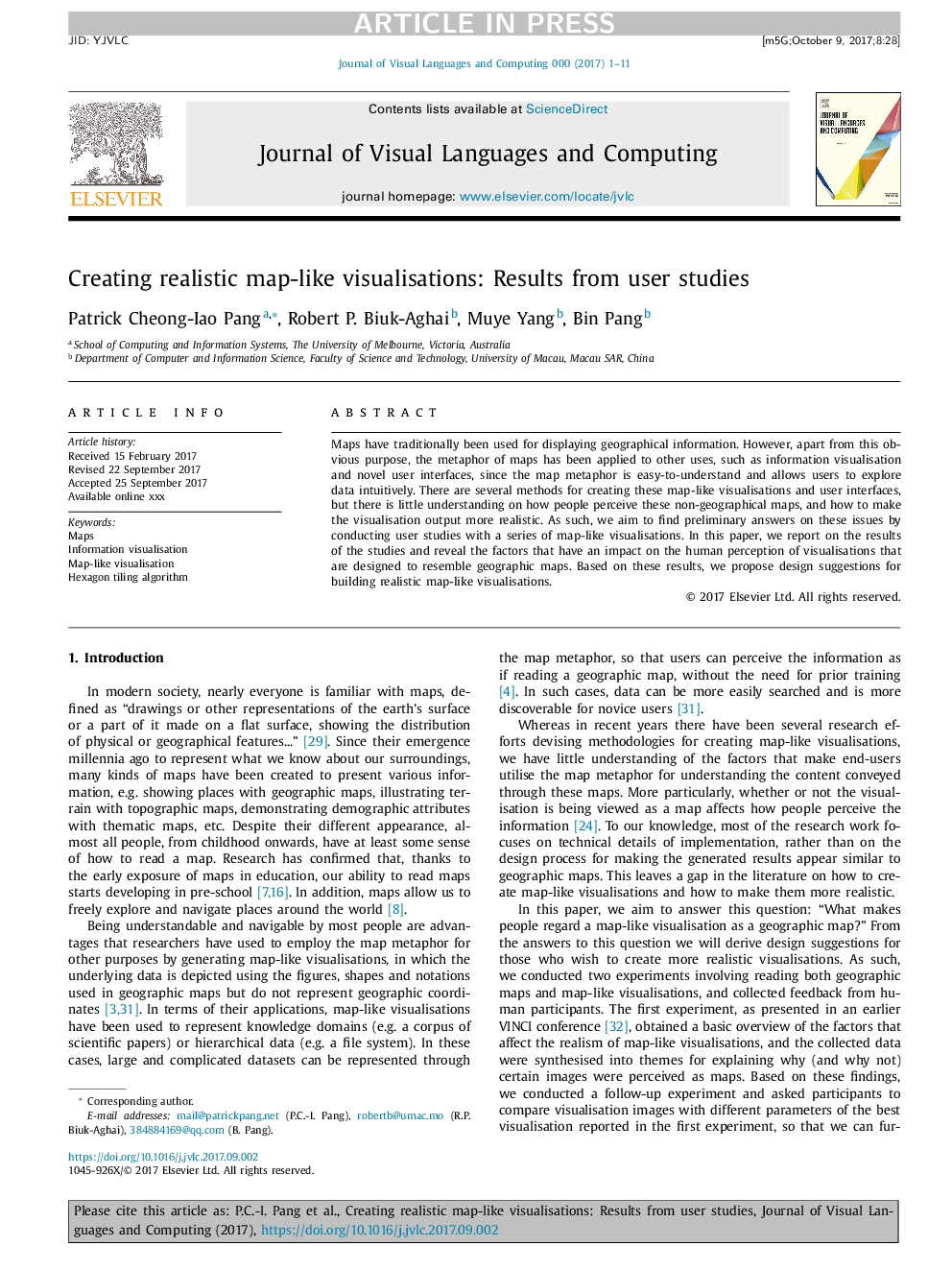| Article ID | Journal | Published Year | Pages | File Type |
|---|---|---|---|---|
| 6934663 | Journal of Visual Languages & Computing | 2017 | 11 Pages |
Abstract
Maps have traditionally been used for displaying geographical information. However, apart from this obvious purpose, the metaphor of maps has been applied to other uses, such as information visualisation and novel user interfaces, since the map metaphor is easy-to-understand and allows users to explore data intuitively. There are several methods for creating these map-like visualisations and user interfaces, but there is little understanding on how people perceive these non-geographical maps, and how to make the visualisation output more realistic. As such, we aim to find preliminary answers on these issues by conducting user studies with a series of map-like visualisations. In this paper, we report on the results of the studies and reveal the factors that have an impact on the human perception of visualisations that are designed to resemble geographic maps. Based on these results, we propose design suggestions for building realistic map-like visualisations.
Keywords
Related Topics
Physical Sciences and Engineering
Computer Science
Computer Science Applications
Authors
Patrick Cheong-Iao Pang, Robert P. Biuk-Aghai, Muye Yang, Bin Pang,
